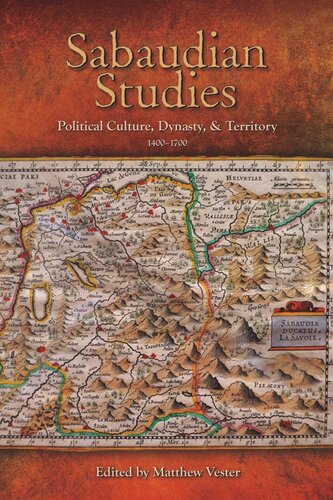

Most ebook files are in PDF format, so you can easily read them using various software such as Foxit Reader or directly on the Google Chrome browser.
Some ebook files are released by publishers in other formats such as .awz, .mobi, .epub, .fb2, etc. You may need to install specific software to read these formats on mobile/PC, such as Calibre.
Please read the tutorial at this link: https://ebookbell.com/faq
We offer FREE conversion to the popular formats you request; however, this may take some time. Therefore, right after payment, please email us, and we will try to provide the service as quickly as possible.
For some exceptional file formats or broken links (if any), please refrain from opening any disputes. Instead, email us first, and we will try to assist within a maximum of 6 hours.
EbookBell Team

0.0
0 reviewsThis collection of interdisciplinary essays introduce the history and culture of the lands ruled by the sovereign house of Savoy during the late medieval and early modern periods, territories now part of France, Italy, and Switzerland. Because the Sabaudian realms were geographically, linguistically, and culturally diverse and did not evolve into a single modern nation-state, their early history has been overlooked by historians whose perspectives were often informed by a narrow, national framework.
An international team of scholars offers new research that de-provincializes many of the existing rich scholarly assessments of the historical significance of these lands, which were important for rulers and subjects throughout early modern Europe. The volume explores the concept of “Sabaudian studies” and identifies historiographic developments and current trends in the field. Beginning with the geography and the history of the area, the essays examine Sabaudian political culture (diplomatic practice, judicial institutions, and political thought), dynastic representation (court festivals and celebrations, and the projection of dynastic prestige abroad, with attention to the sacred heritage of the house), and territorial domination (its fiscal, religious, feudal, and composite dimensions).
Contributors include Eva Pibiri, Laurent Perrillat, Rebecca Boone, Alessandro Celi, Thalia Brero, Stéphane Gal and Preston Perluss, Michel Merle, Toby Osborne, Kristine Kolrud, Guido Alfani, Marco Battistoni, Matthew Vester, and Blythe Alice Raviola.